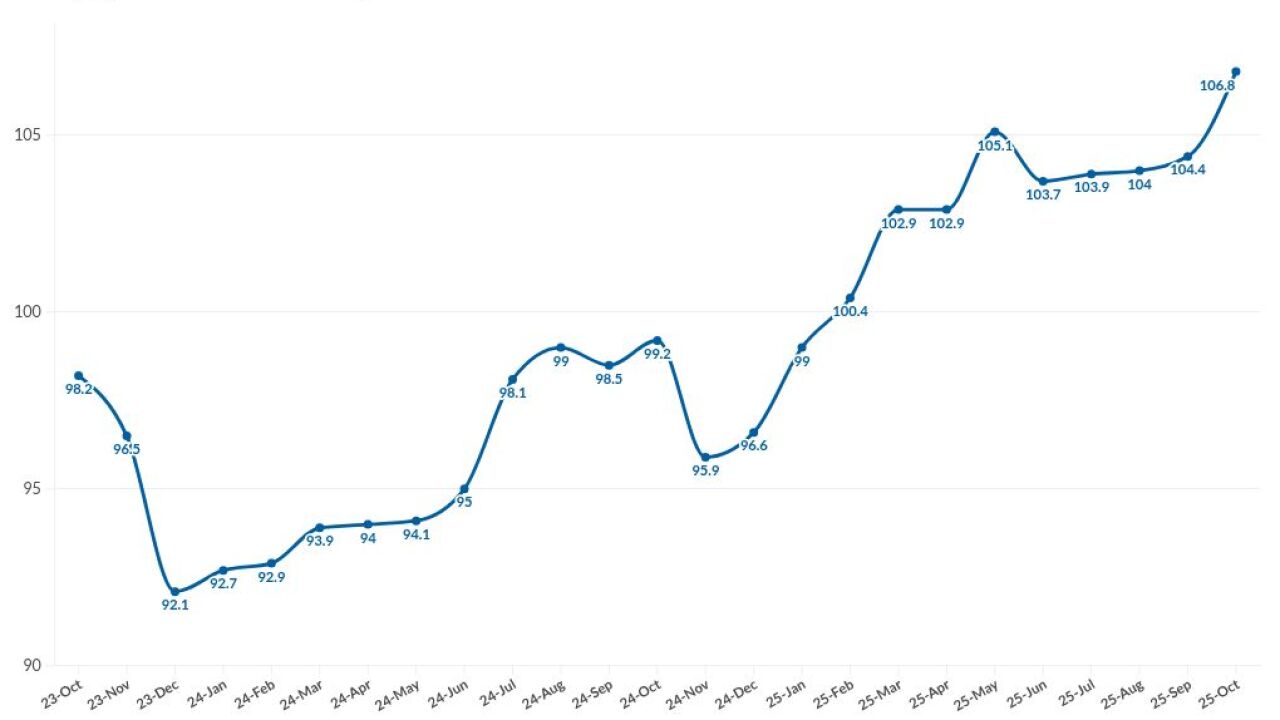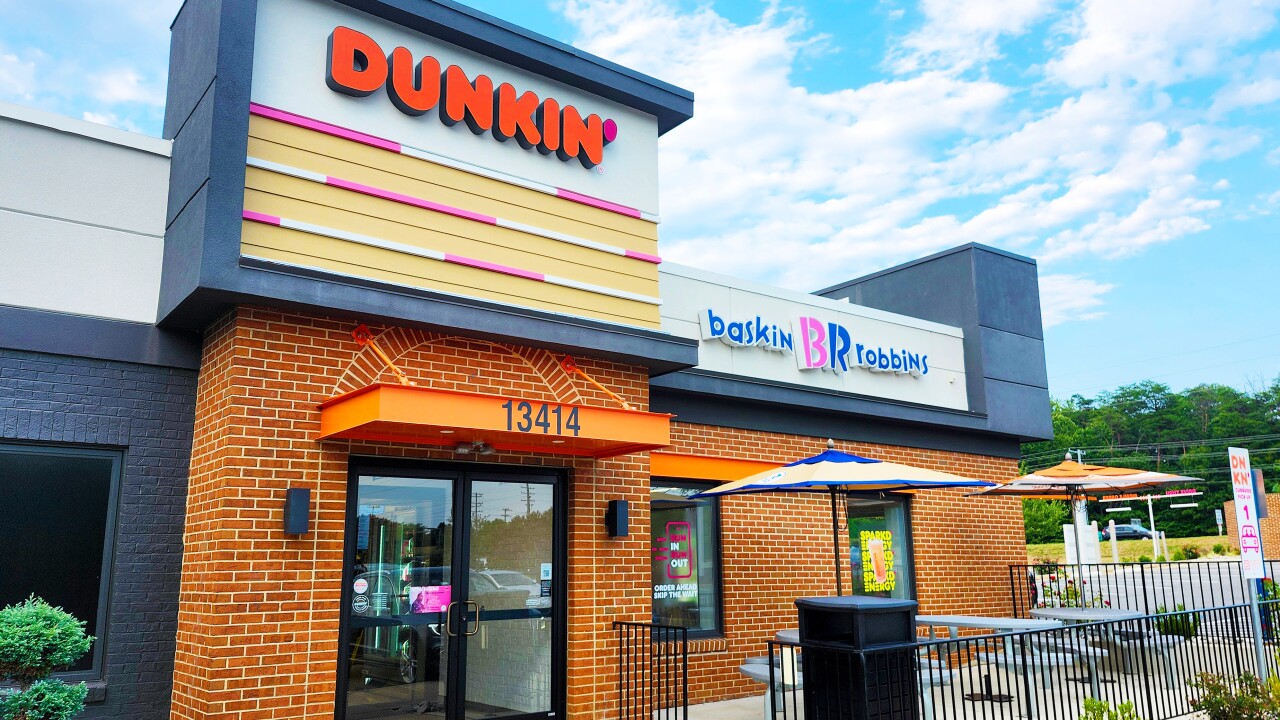Honda and Nissan plan to add between $2.36 billion and $2.88 billion in new securitizations into the U.S. prime auto ABS pipeline.
According to presale reports Thursday, American Honda Finance is proposing either a $1.32 billion or $1.58 billion pool of originations for Honda- and Acura-branded vehicles sold through U.S. dealerships of American Honda Motor Co.
And depending on market conditions, Nissan Motor Acceptance Corp. will market either $1.04 billion or $1.3 billion in bonds secured by receivables from loans it issued to car buyers through Nissan North America dealers.
Both transactions are the second this year for each of the automotive captive-finance firms, and will build on a tally of 19 asset-backed transactions of pools of prime auto loans this year totaling $21.44 billion.
Honda
According to presale reports from Moody’s Investors Service and Fitch Ratings, American Honda Finance is prepping its 75th term securitization of retail installment auto-loan contracts with Honda Automobile Receivables 2019-2 Owner Trust, which carries the usual high credit-quality metrics that have made the platform among the most stable in the prime auto ABS market.
The notes offering are all Class A senior-note tranches for each pool. The Class A-2 notes due December 2021 and Class A-3 notes maturing in June 2023 will each be sized at either $452 million or $542 million, depending on the final pool size. The Class A-4 notes due March 2025 will be either $115.79 million or $139 million. All are triple-A rated by Moody’s and Fitch.
Each pool also has a money-market tranche: $296 million and $356 million, both rated F1+ by Fitch and P-1 by Moody’s.

All of the notes are supported by 2.75% credit enhancement.
The weighted average borrower FICO is 771, with original term averages of 62 months and 12 months of seasoning. The WA APR of loans in both proposed pools is 2.32%, with an average account balance of more than $21,000 for both the $1.61 billion receivables pool backing the $1.58 billion notes offering, and the $1.35 billion in loans supporting the proposed $1.31 billion bond pool.
New vehicles make up a 93% share of each pool. The pools are evenly divided between passenger sedans (42.6%/42.7% for the $1.58 billion and $1.31 billion pools, respectively) and sport utility/crossover vehicles (42.9%).
One Moody’s note of caution is the 28% collateral pool share of loans with terms over 60 months, which tent to have weaker performance than loans with shorter original payment terms. The two prior deals had exposures of 24% (HAROT 2019-1) and 24.5% (HAROT 2018-4).
Moody’s has an expected cumulative loss projection of 0.5% on either pool, in line with HAROT loss ranges of 0.4% to 0.5% since 2013.
AHFC’s managed portfolio of served loans rose slightly to 1,850,522 accounts as of the end of the firm’s fiscal year on March 31 of this year, compared to 1,835,420 the year prior; total outstanding balances at the end of the period increased to $27.9 billion, up from $26.3 billion the year prior.
Delinquencies for the 2018 fiscal year were up slightly across the board year-over-year: 30-plus day late pays went to 0.78% from 0.69%; 60-plus day delinquencies were 0.14%, up from 0.11%; and accounts past due over 90 days rose to 0.04% from 0.03%. Net losses grew to 0.41% from 0.36%.
BNP Paribas, JPMorgan and SMBC Nikko are underwriters of the transaction.
Nissan
Nissan Auto Receivables Trust 2019-B will be sized at either $1 billion or $1.25 billion, with similar capital stack ratings to Honda’s deal. The small pool’s triple-A tranches consist of $350 million in Class A-2 notes due March 2022, Class A-3 notes due November 2023 and $86 million in Class A-4 notes. The short-term $214 million notes carry F-1+ and P-1 ratings from Fitch and Moody’s.
The larger pool has a proposed $268 million Class A-1 money-market tranche, $438 million in Class A-2 and A-3 tranches, and a $106 million Class A-4 offering.
The Class A-2 notes will be split between fixed- and floating-rate bonds in either pool.
Nissan Motor Acceptance Corp. (NMAC) is pooling high-quality credit borrowers with a weighted average FICO of 773 on loans primarily for new Nissan and Infiniti vehicles (new vehicles make up 92.8% of either pool’s collateral). The WA APR of the pools is 3.51%, and the average original term is 67 months with 12 months of seasoning.

Around 70% of the loans in both pools have original terms greater than 60 months, the highest among recent Nissan transactions that ranged from 53% to 68%, according to Moody’s.
The 4.25% credit enhancement is consistent with prior NMAC-sponsored transactions.
Fitch has a forward-looking credit loss expectation of 1.15%, while Moody’s maintains a 1.1% expected loss rate it gave Nissan’s first prime-auto loan securitization of the year – a deal that had an increased loss expectation over the 1% from NAROT 2018-4 due to some deterioration in credit performance on NAROT deals since 2016.
Wells Fargo is the lead underwriter on the transaction.





